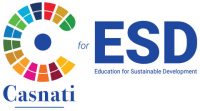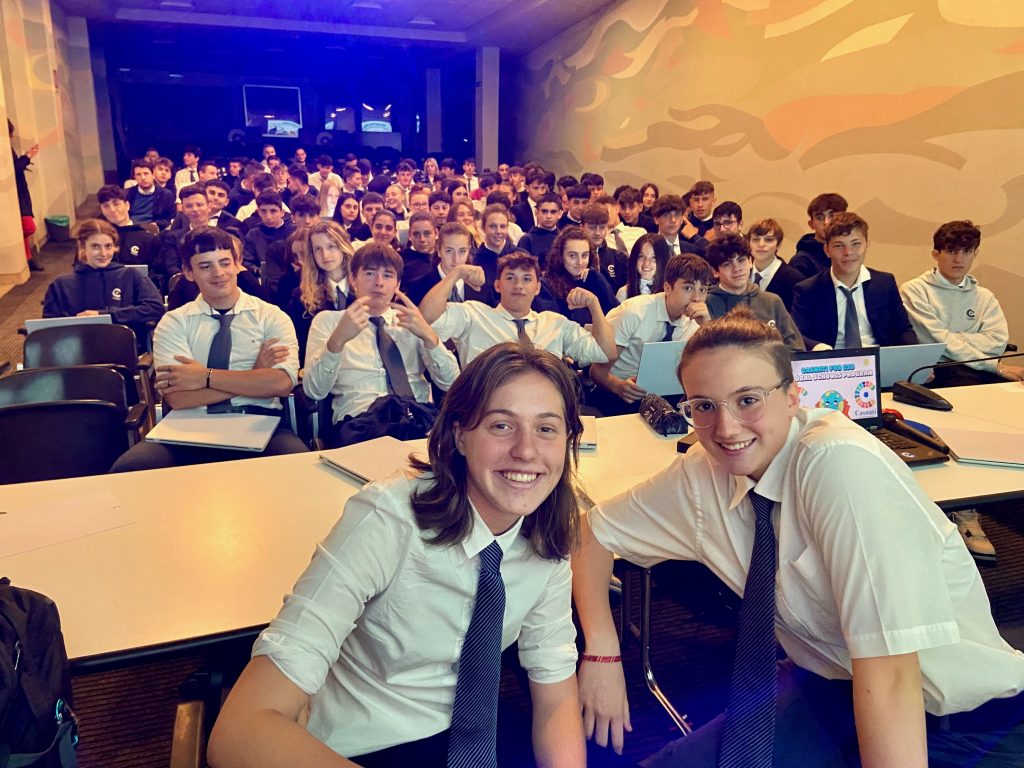The Casnati for ESD project has always focused on educational innovation to promote concrete and engaging sustainability education. Among the most significant experiences of recent years are the peer-to-peer conferences organized by students from the institute’s various study programs.
More than twenty conferences have been held in the Aula Magna of the Centro Studi Casnati. These conferences allow participants to explore topics related to the Sustainable Development Goals (SDGs) and transform the lecture hall into a true active learning laboratory.
A Structured and Collaborative Format
Each conference originates from an in-depth class study, where students take on specific roles:
- Speakers: Those who present the content during the conference, refining their public speaking and audience management skills.
- Editors: Responsible for drafting the final text, starting from individual research and studies.
- Graphic Designers: Creators of slides and visual materials, essential for making presentations more effective and engaging.
The audience, consisting on average of around a hundred students from different classes, bringing together various paths of study (Language high school, Art high school, Scientifica high school, Aeronautical Institute, Hospitality institute), does not take on a passive role. Instead, they are encouraged to engage with questions and reflections, transforming each session into a moment of exchange and collective growth.
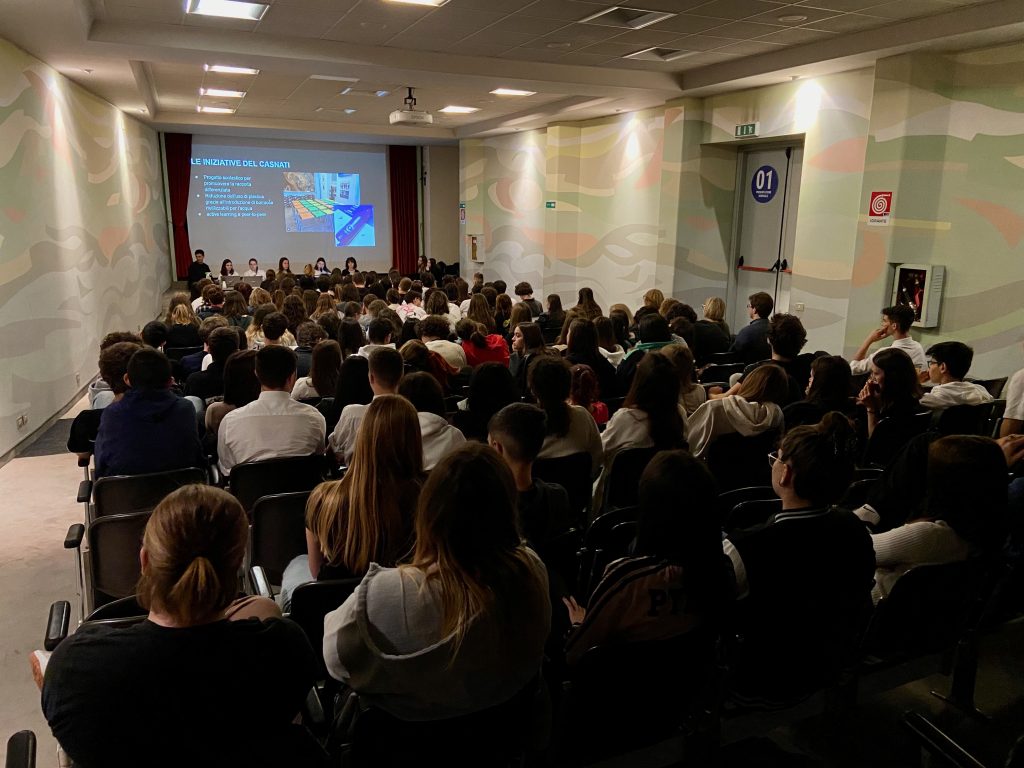
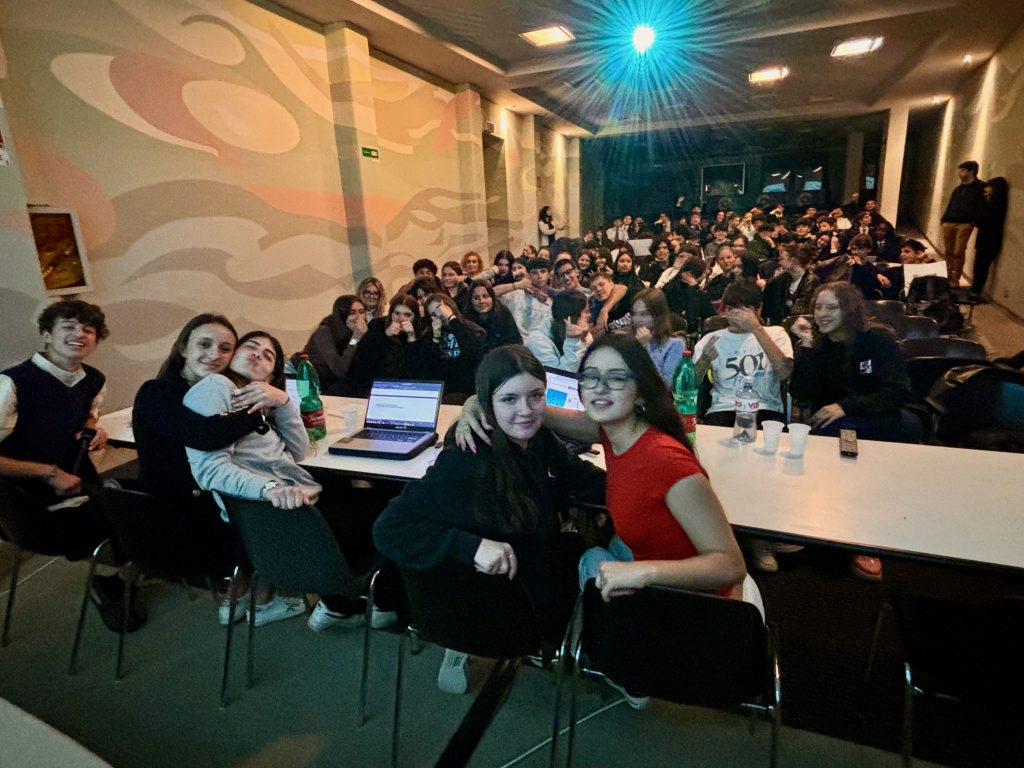
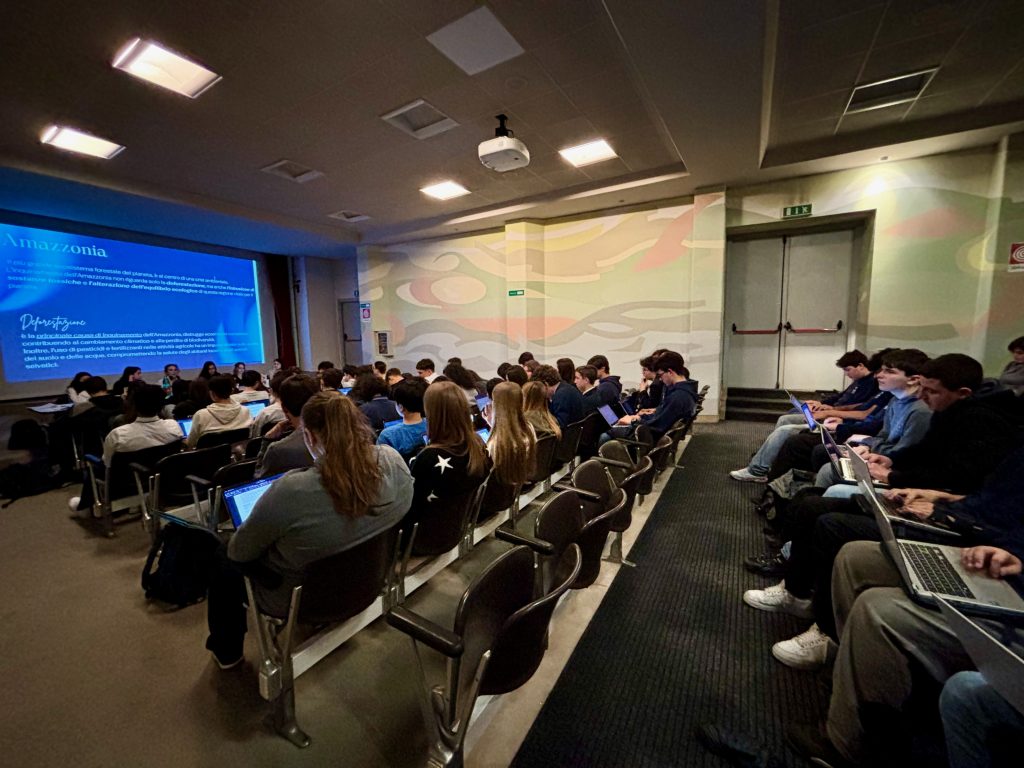
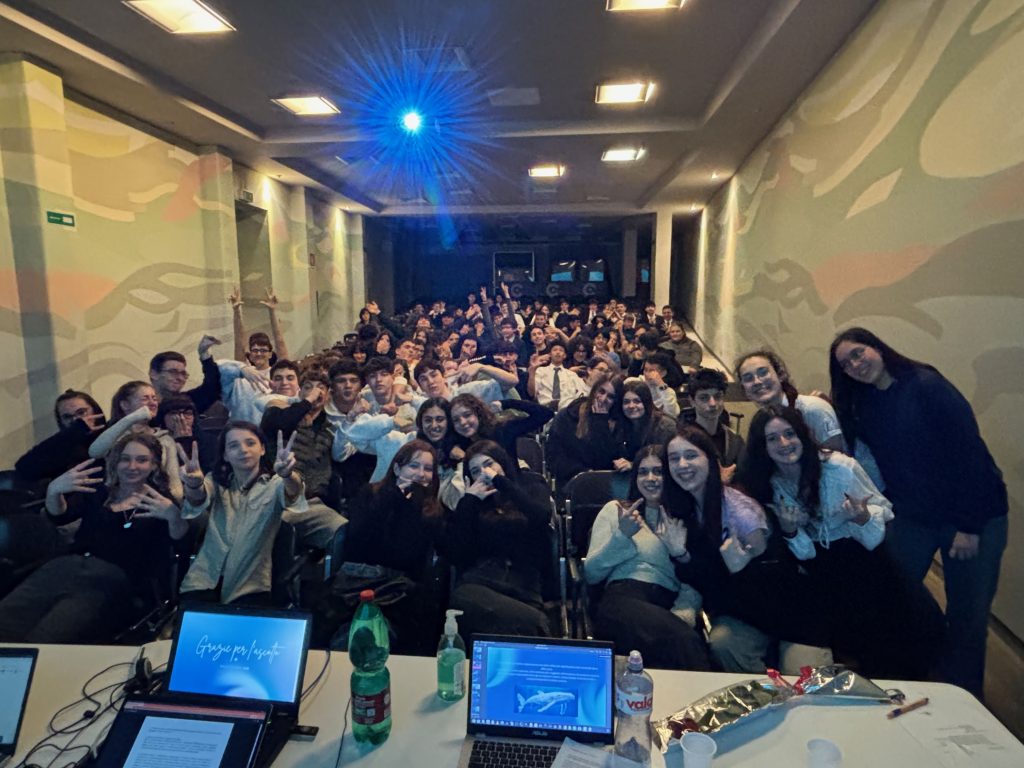
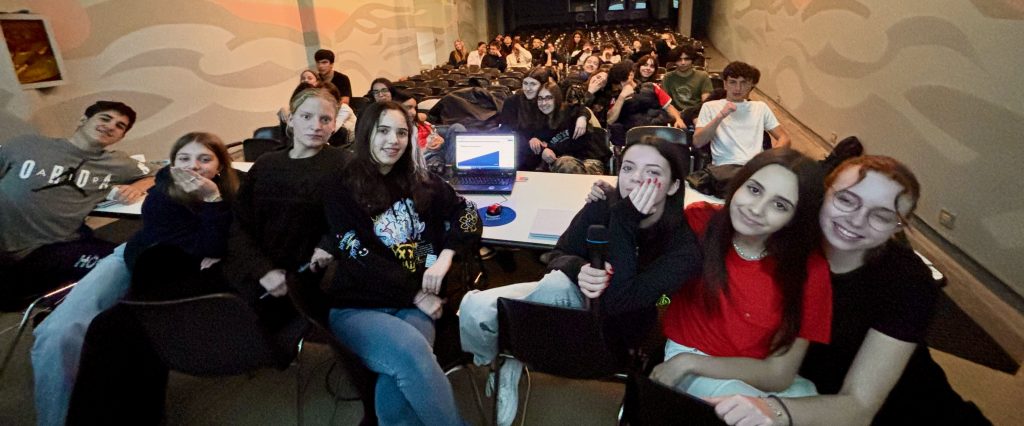
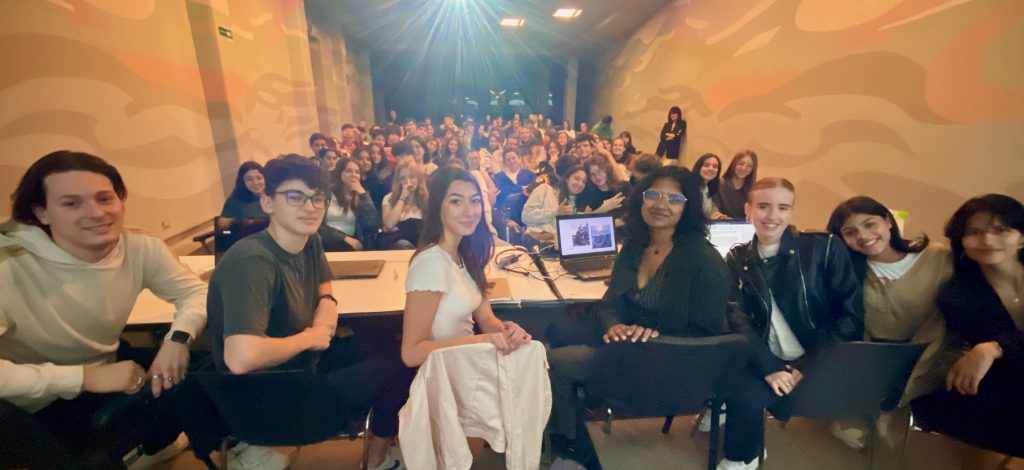
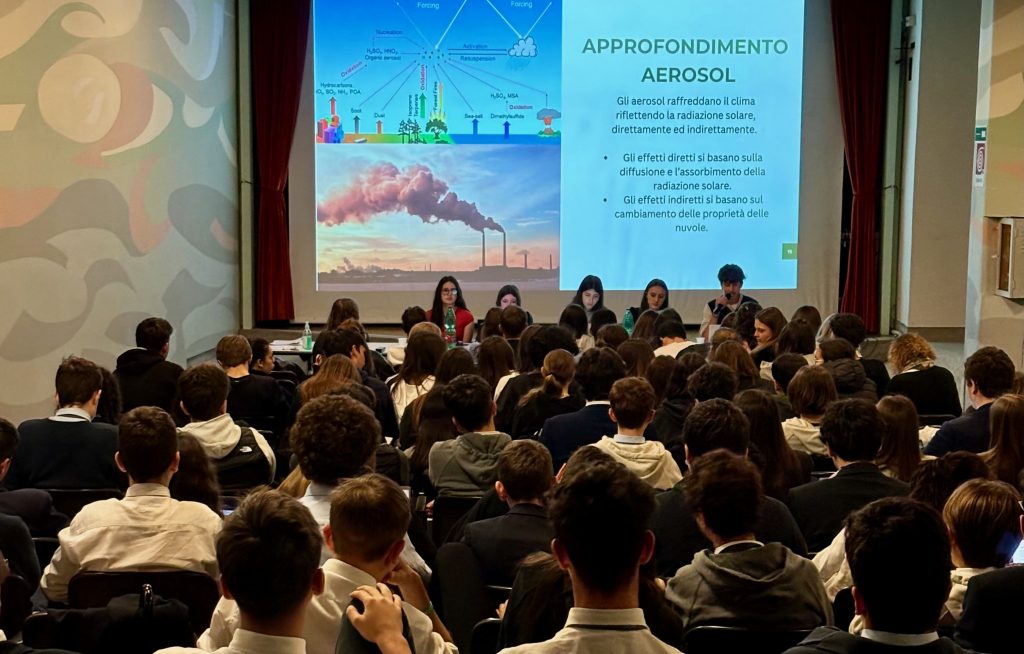
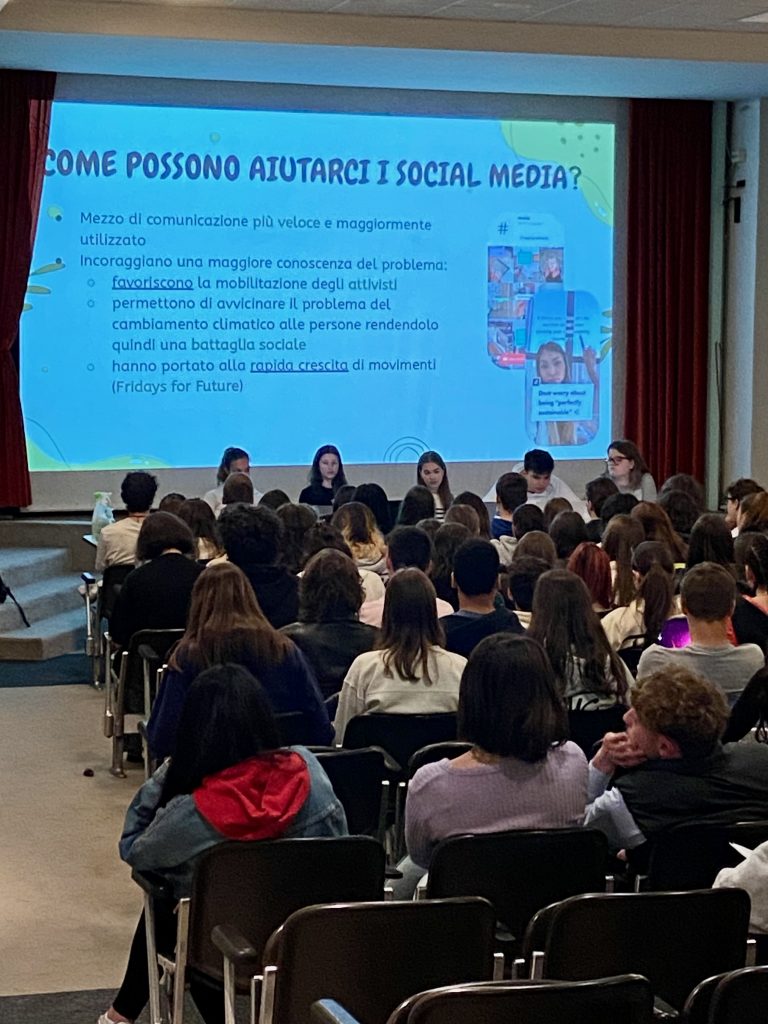
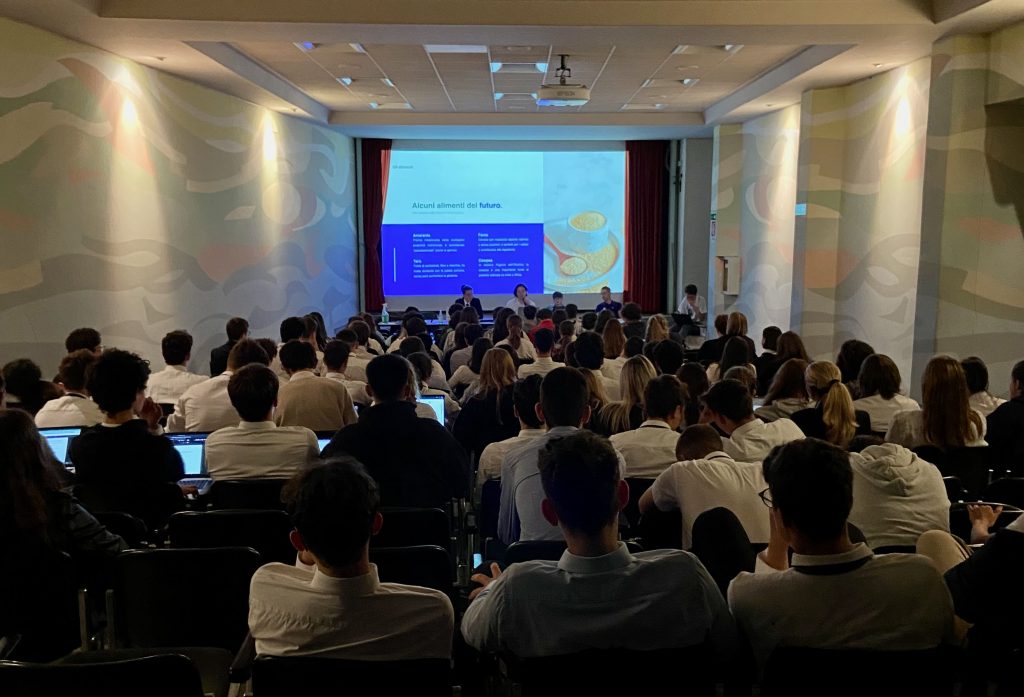
The Soft Skills Developed by Students
Peer-to-peer conferences provide a unique opportunity to develop a range of essential soft skills for students’ academic and professional futures:
- Effective Communication: Speakers refine their ability to speak in public, modulate their tone of voice, manage body language, and deliver clear and structured messages.
- Teamwork and Collaboration: Preparing for a conference requires a strong team spirit, with well-defined roles and constant coordination among participants.
- Critical Thinking and Problem-Solving: Students must select the most relevant information, organize it coherently, and respond to potential audience questions or objections.
- Systems Thinking: Understanding the connections between global and local phenomena, analyzing complex problems from multiple perspectives to identify integrated solutions.
- Normative Thinking: Students develop the ability to analyze ethical principles and norms related to sustainability critically.
- Creativity and Digital Skills: Designing slides and visual materials encourages the use of presentation, graphic design, and video editing software, enhancing digital competencies.
- Leadership and Responsibility: Students learn to manage time, meet deadlines, and make independent decisions.
- Content Organization and Synthesis: Transforming a complex topic into a clear and engaging presentation requires careful logical structuring.
- Empathy and Active Listening: Students learn to interpret audience reactions and adapt their speech based on the dynamics of the room.
- Adaptability and Stress Management: Facing unexpected questions, overcoming stage anxiety, and reacting in real time to unforeseen situations help develop resilience and flexibility. (CLICK HERE to learn more about Casnati’s training programs on socio-emotional learning.)
The Added Value for Casnati for ESD
Peer-to-peer conferences are not just an effective teaching tool; they are also a key pillar of the Casnati for ESD project. They demonstrate how students can be active agents of change, spreading sustainability awareness among their peers through a bottom-up, inclusive, and participatory approach.
Moreover, this methodology perfectly aligns with an innovative and interdisciplinary educational approach, which fosters learning not only through theoretical study but also through concrete and engaging experiences. The exchange between students from different classes broadens perspectives, helping build a more cohesive and aware school community.
This experience also has a direct impact on students’ future professional skills, preparing them for real-world work environments where communication, collaboration, and synthesis are fundamental competencies.
The success of these initiatives confirms that when students are given the opportunity to express their skills and potential, the educational impact becomes even deeper and more long-lasting.
Through the Casnati for ESD project, Casnati continues to pave the way for an innovative school, focused on 21st-century skill development and the creation of a more sustainable future.
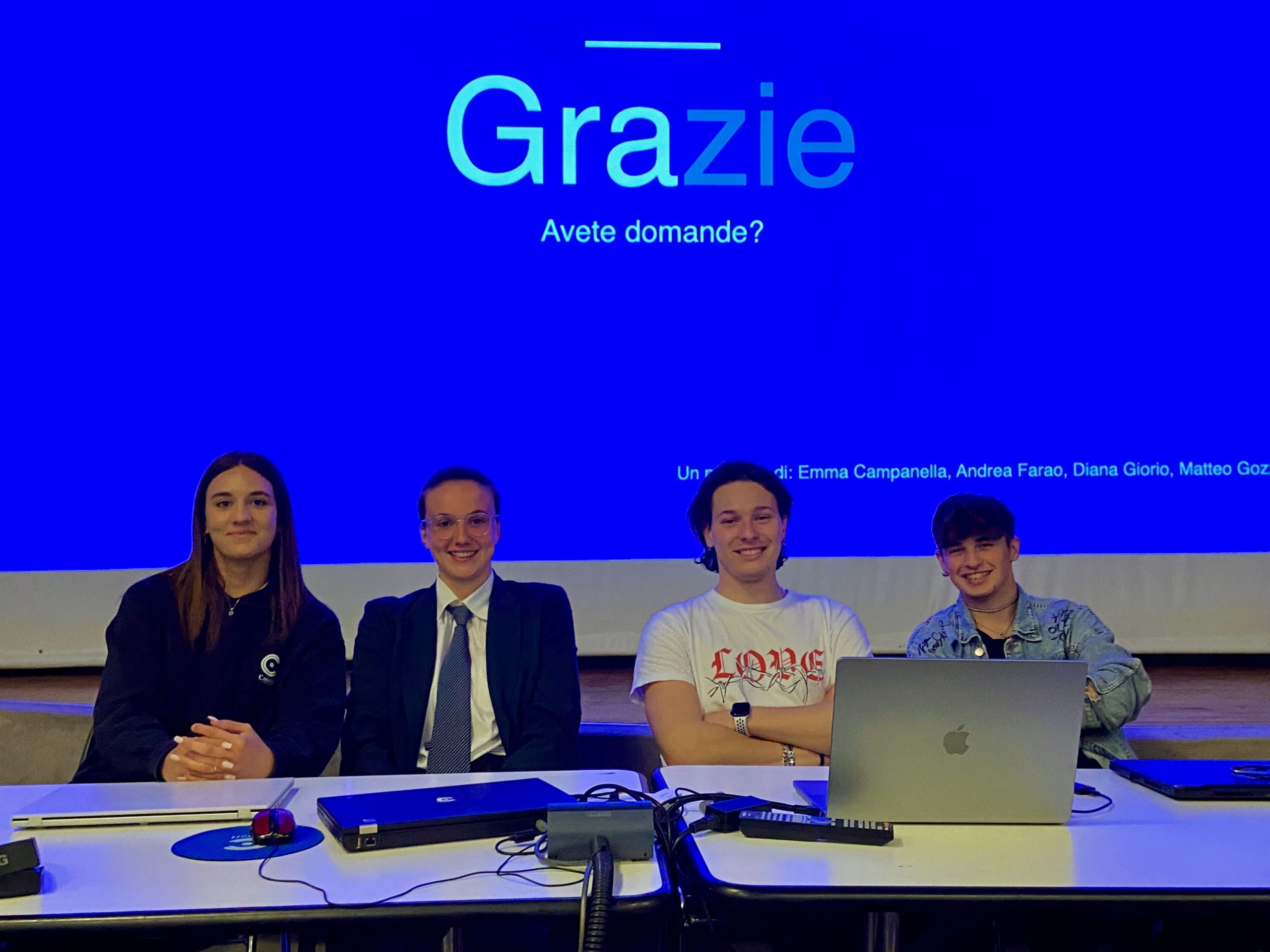
#CasnatiforESD #wearecasnati
